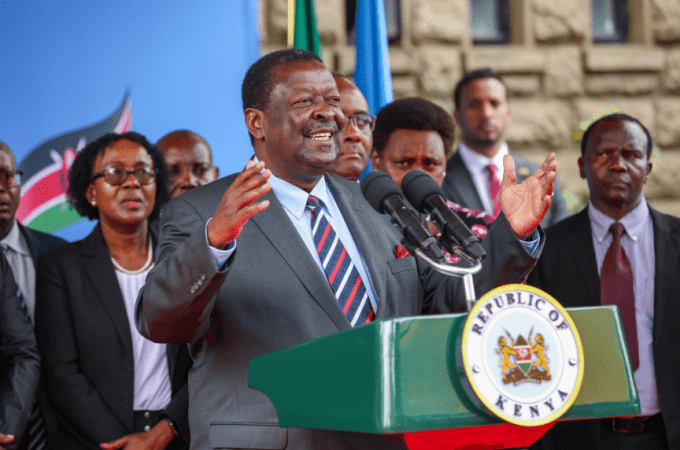NAIROBI – Experts and farmers on Friday said at an international conference that efforts to fight hunger and rural poverty, backed by billions of dollars, are being hampered by weak support for extension services and advice to enable smallholder farmers to produce more food and reap greater benefits from their harvest.
Development experts, farmers, and innovators who are attending the conference “Innovations in Extension and Advisory Services” in Nairobi said the world’s smallholder farmers lack expert guidance required to meet future global food needs.
“With the global population approaching 9 billion by 2050, we need widespread adoption of farming practices that can sustainably increase yields in a changing climate to feed more people, while also creating new job and market opportunities to address high unemployment and poverty,” said Michael Hailu, executive director of CTA — Netherlands-based Technical Centre for Agricultural and Rural Cooperation.
The expert said farm extension and rural advisory services occupy a strategic position in the agricultural production cycle. They link farmers to information about appropriate farming practices, when and what to plant, and how to use new technologies like seeds and soil management techniques developed by researchers.
Extension service providers also pass on feedback from farmers to policy makers and help to ensure that government policies are effectively meeting the needs of farmers. The conference brought together some 400 leading global experts in agriculture development from 75 countries in Nairobi this week.
“Today, Africa appears to have a monopoly on poverty and hunger. New technologies and access to seeds and inputs and better management practices are critical to changing this situation, but they are by no means sufficient,” said Dr. Namanga Ngongi, President of the Alliance for a Green Revolution in Africa (AGRA). “To unlock the potential of smallholder farmers to fight hunger and food insecurity, and to bring prosperity, these innovations must reach farmers. Extension agents and advisory services are critical in transforming Africa’s agriculture.”
According to participants, Brazil’s experience over the last eight years provides a potentially useful example for transforming agriculture in other parts of the developing world. In 2003, the government of Brazil began to focus further on smallholder farmers who produce around 80 percent of the food consumed. In 2004, the government of Brazil instituted an extension services policy that increased the coverage and technical capacity of extension in rural areas.
These were paralleled with a set of policies such as credit and public purchase, the combination of which brought more than 33 million people out of poverty. “The role of extension services in development is critical to transforming the countryside. They inform, organize, and give farmers the means to access policies, knowledge, and innovations that are designed to support them,” said Dr. Hur Ben Correa da Silva, President of the Brazilian Rural Extension Academy and technical advisor in the Ministry of Agrarian Development.
On average there is one extension worker for every 4,000 farmers in Africa.
Although the situation has improved in some countries like Kenya, where the ratio is one to every 1,470 farmers, it is still far below the ideal of one extension officer for every 400 farmers. Experts at the conference agreed that technology that can disseminate information to farmers beyond face-to-face interaction is crucial to filling this gap.
“Roughly 60 percent of Africa’s population is involved in agriculture. That is 600 million people,” said Monty Jones, World Food Prize laureate and executive director of the Forum for Agricultural Research in Africa (FARA). “To increase agricultural productivity and reach the broader agricultural sector, we must focus on quality investments in technologies and knowledge that can cost effectively reach these farmers and increase their awareness of new innovations.”
Recently, agricultural extension systems in many countries have changed from under-funded, centrally controlled, top-down programs to initiatives where many different entities are providing information and advice to farmers – from NGOs to bulk commodity purchasers and research institutes to state agencies. The rise of community radio stations across Africa, combined with the mobile phone revolution, have the potential to transform the extension and advisory sector, according to experts at the meeting.
Call-in programs have turned radio into an interactive tool that gives a voice to farmers, and SMS services provide farmers with timely market information. For example, there are several projects in West Africa that are testing the use of SMS to give farmers market prices, extension advice, and even information on appropriate social and health- related issues.
“These communications technologies are part of a new age of extension that serve farmers well. They provide information to farmers when they need it; they give farmers a voice in development,” said Doug Ward, chair of Farm Radio International, a Canadian-based organization working with hundreds of broadcasters across sub-Saharan Africa to educate farmers on best practices and inform them of innovations to improve their harvests. (Xinhua)









Leave a comment